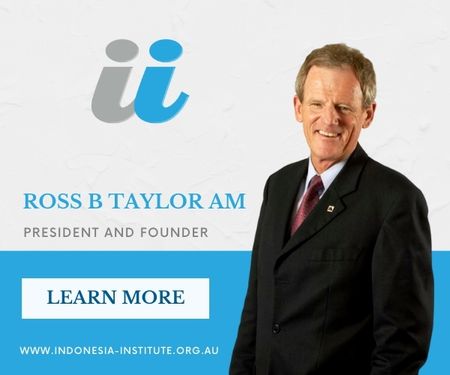BY: TIA ARDHA
For decades, Australians’ interest in learning Indonesian has been sharply declining, with several universities cutting courses in the language altogether.
As Indonesia eyes an increasingly important role in Southeast Asia, some experts say it’s time to reverse that trend. At least 160 people filed into a lecture theatre at the Social Sciences Building at the University of Sydney on 9 June. Of them, 120 were students from five high schools in NSW ranging from years eight to 12 and taking Indonesian subjects.
“By learning Indonesian, you are contributing to enriching Australia’s knowledge of other societies, and our own,” said Associate Professor Dwi Noverini Djenar, Chair of Indonesian Studies at the University of Sydney, in her opening remarks.
The students, teachers and others involved in several Australia-Indonesia organisations gathered for the “Indonesia in Action Day” – a joint initiative led by Australia-Indonesia Youth Association (AIYA) NSW and University of Sydney, along with Australia Indonesia Association, Balai Bahasa dan Budaya Indonesia (BBBI) and high school teachers across NSW.
Supported by Indonesian Consulate General in NSW, the event is designed to increase student engagement and exposure to the Indonesian language and culture, with ultimate purpose of the strengthening of Indonesian learning in the state.

This drive is not without reason. Learning a foreign language – not just Indonesian – is on the wane among Australian students.
In the past two decades, among other foreign languages, Indonesian in particular has experienced a significant decrease in the number of learners at the high school level, from 6.4 per cent in 2006 to only 3.3 per cent in 2021.
This predicament is exacerbated by the closure of Indonesian studies at several universities across Australia including La Trobe University and Western Sydney University.
Deputy Director of the non-profit consortium of universities providing in-country study options in Indonesia (ACICIS), Associate Professor David Reeve, said that nowadays universities were more business-like than they used to be thus the closure of programs with low enrolments.
But Indonesian should be seen differently. Dr Reeve said that Australia would lose heavily if the country didn’t improve students’ interest in foreign language learning.
“[Australia] is very close to Indonesia so there are many areas of cooperation that can be done,” explained Dr Reeve, a researcher and historian himself, citing potential collaborations around cybersecurity, policing, medicine, disaster management and marine biology.
With English as the international language, why should we learn Indonesian?
Dr Djenar said that a knowledge of the Indonesian language fostered an empathetic understanding of a neighbouring society.
“Without language, there’s no other way to understand a society,” Dr Djenar said.

Given English is the international language, it is taught as part of both the junior and senior high school curricula in Indonesia.
However, Dr Reeve, who is also the founding lecturer in the Australian Studies program at the University of Indonesia, said a knowledge of Indonesian was beneficial during business negotiations.
He underlined that most discussions of international business cooperation in Indonesia were conducted among business leaders in Indonesian, not English, and the ability to understand it was a way to be seen as trustworthy.
It’s not that foreigners can join our conversations in English, but that we can participate in their conversations, in their country, in their language.
Government’s role in encouraging uptake of Indonesian
Indonesia has long been seen as a ‘close friend’ of Australia, a view reinforced by Prime Minister Anthony Albanese’s first bilateral trip to the archipelago country.
During the visit, Mr Albanese mentioned that Indonesia was about to be a superpower in the world, and that people-to-people relations needed to be strengthened.
And one key way to achieve this is through an understanding of the Indonesian language.
Dr Reeve said along with universities and other educators, government needed to encourage language learning among students through various programs and initiatives.
“If there is interest from the government, then students and their parents are also affected,” he said.

Indonesian Consul General for NSW, Queensland and South Australia, Vedi Kurnia Buana, said his government had proposed ideas to increase the number of Indonesian learners in the country.
One idea mooted was to bring in teachers from Indonesia, he said.
“But again, there are rules where foreign language teachers – or any job in Australia – require certification,” the Consul General said, referring to the view that a lack of teachers is a contributing factor to the decline in the number of Indonesian learners.
“It would be helpful if he or she [the auxiliary teacher] was accepted by the Australian government. Because, after all, the regulatory authority is the government.”
The Indonesian government conducts a program called “Indonesia Goes to School” where they visit schools that have Indonesian programs across Australia and expose Indonesian culture more closely to the students.

Despite the obstacles encountered, there is still hope that there will be changes for the better through the current Australian government and the new Indonesian government that will be formed after next year’s election.
“Thirty years ago, there was a new government under the Labor Party that was always thinking about its relationship with Asia and Indonesia,” said Dr Reeve.
“Now, it is my hope that history will repeat itself.”





